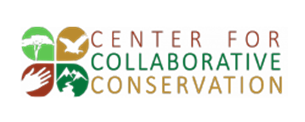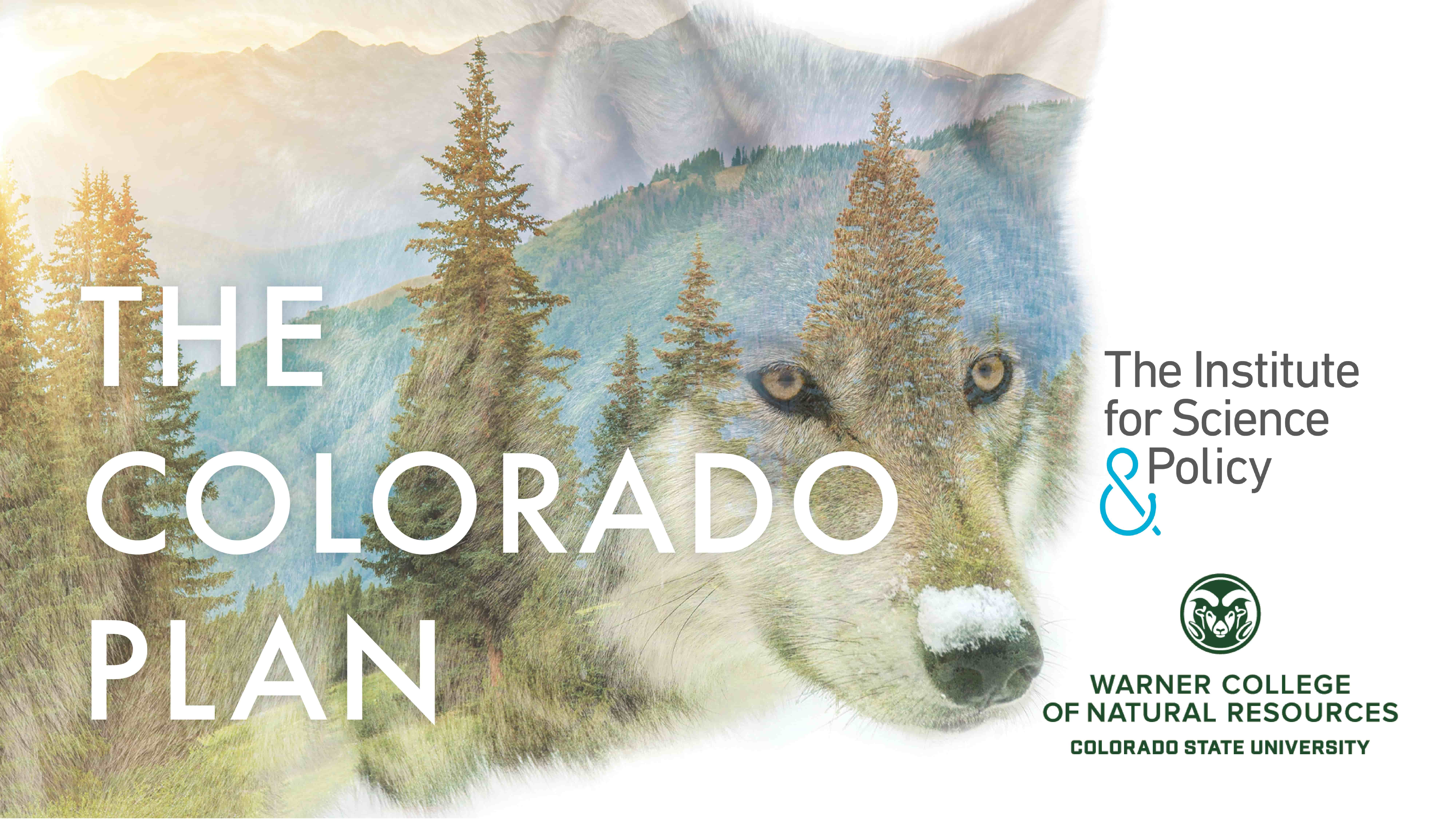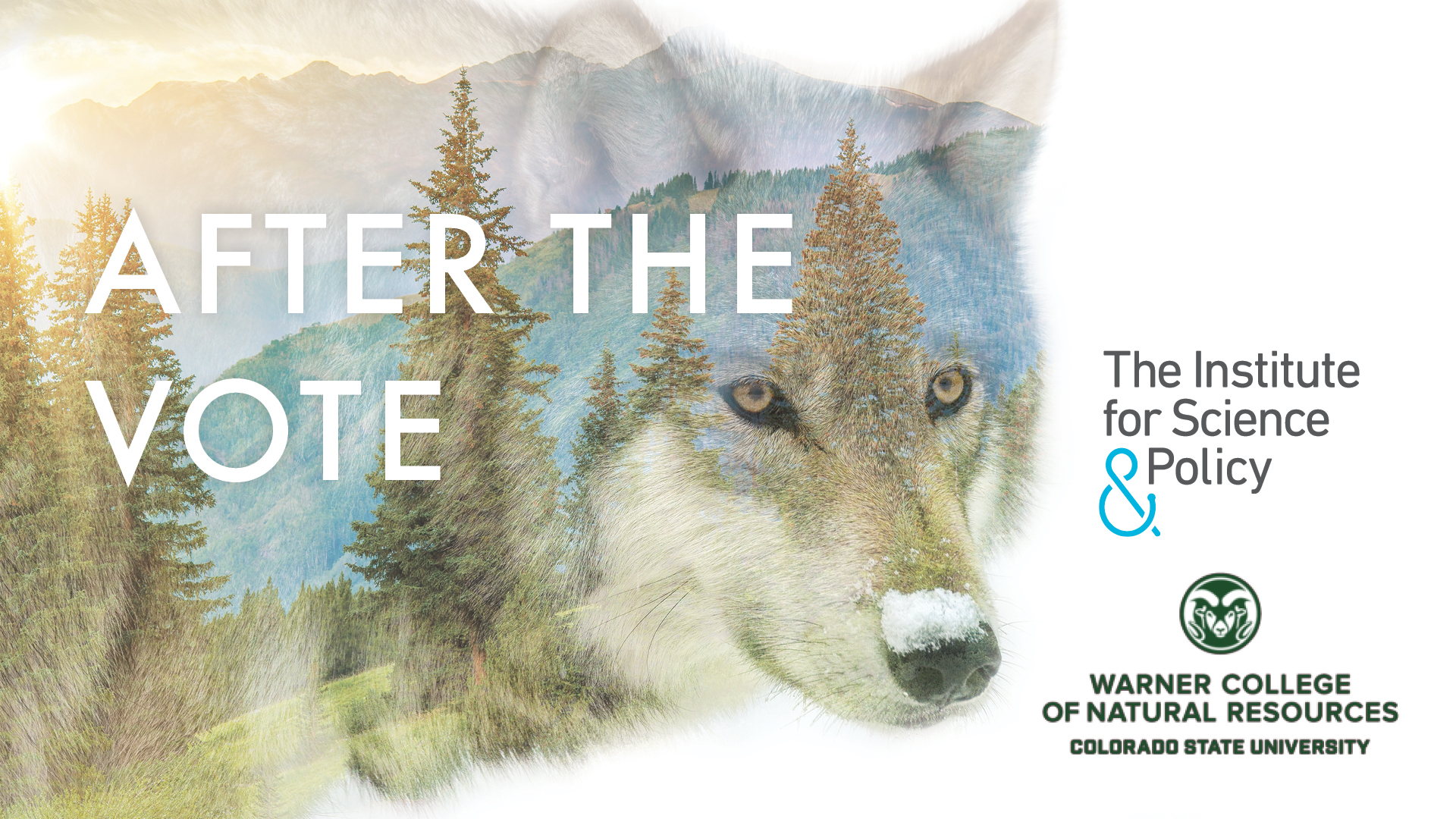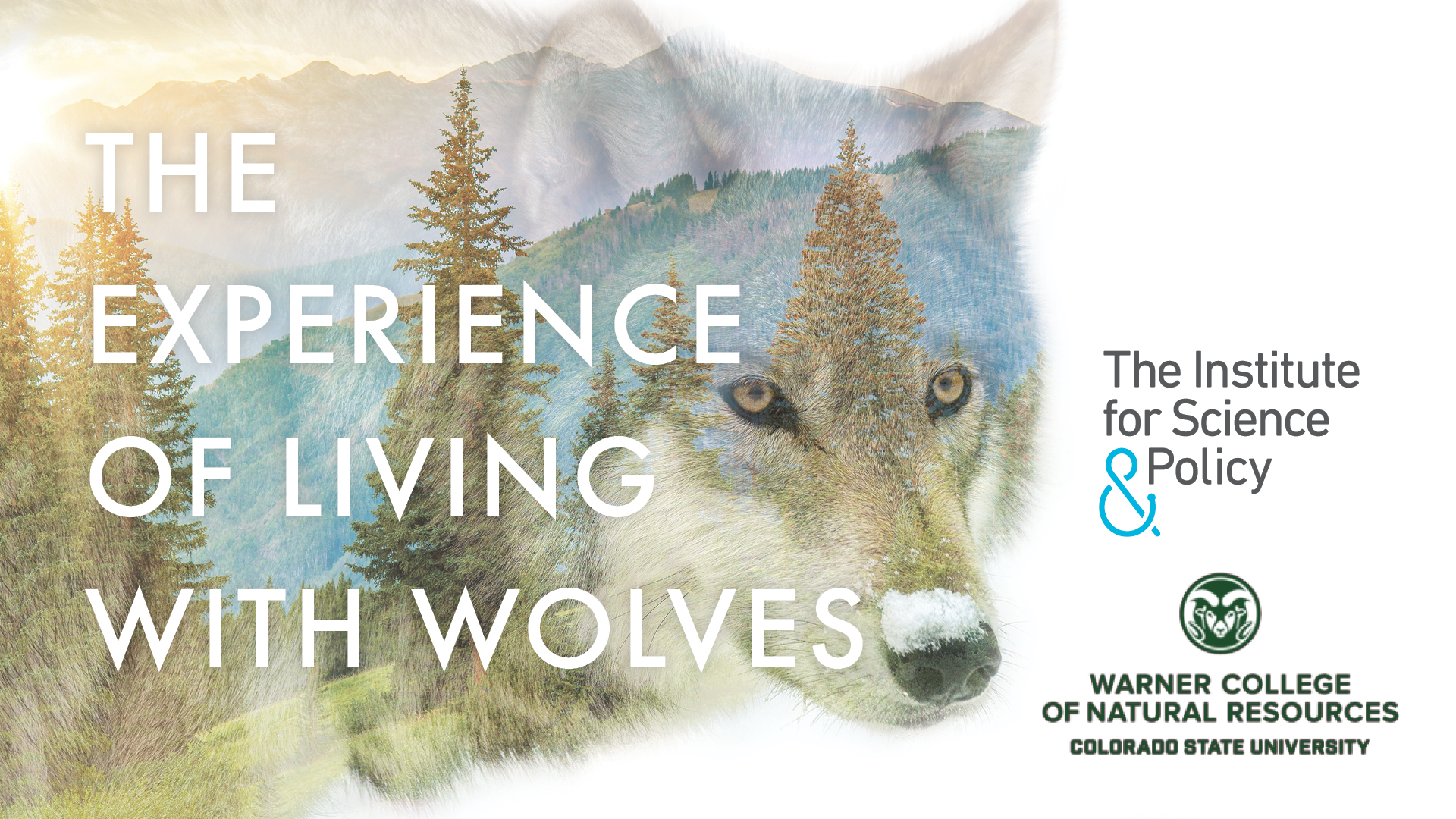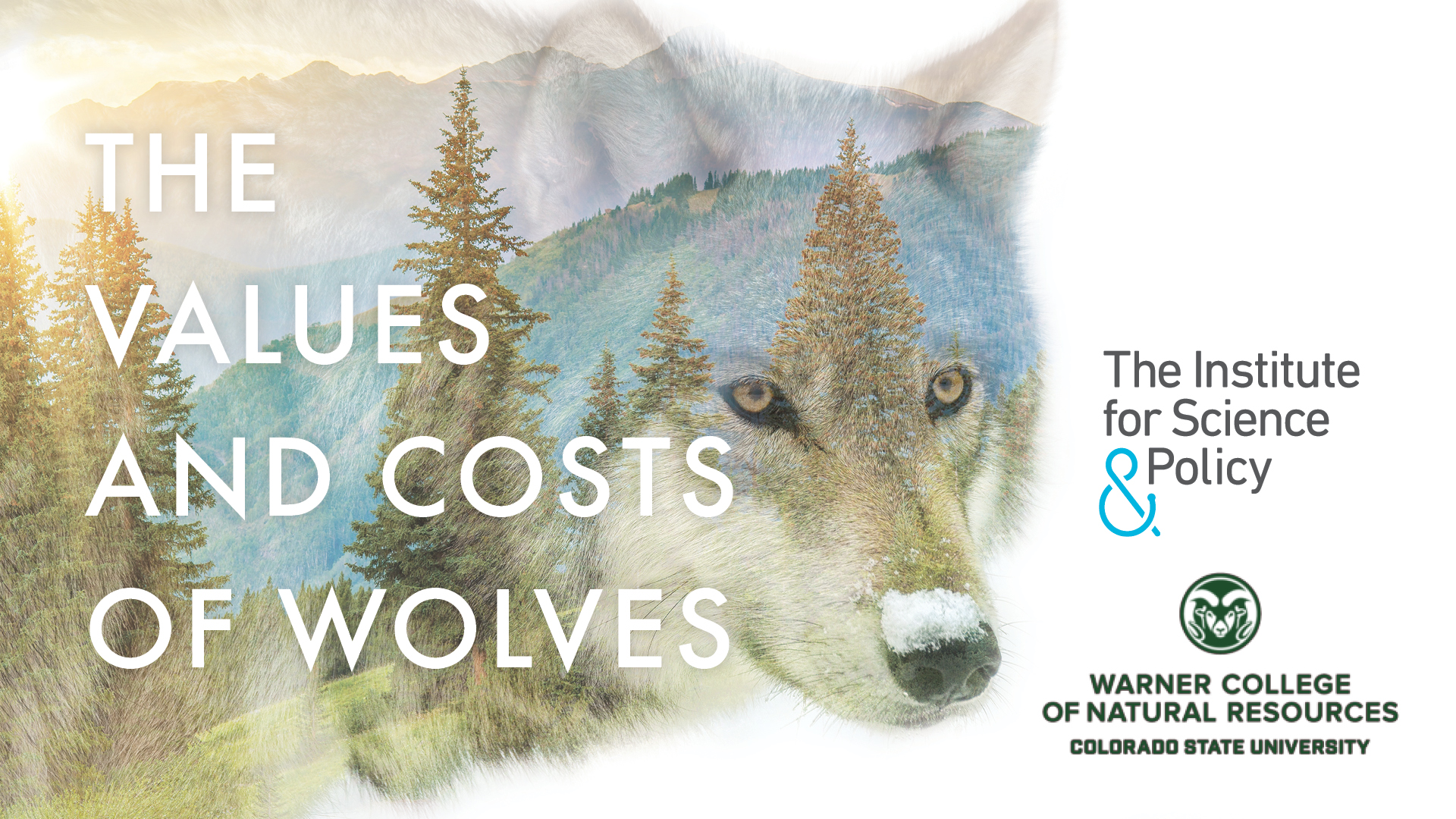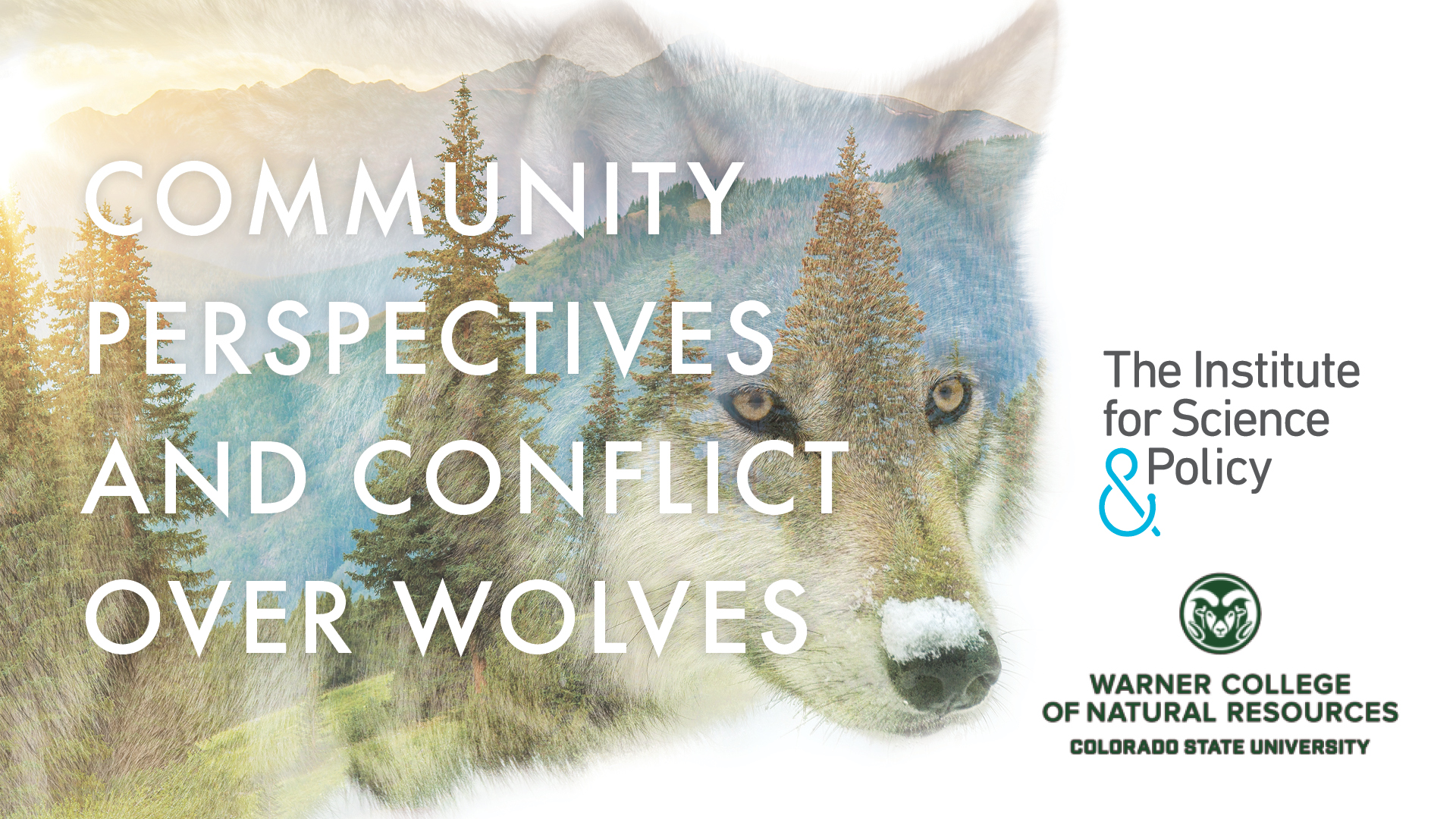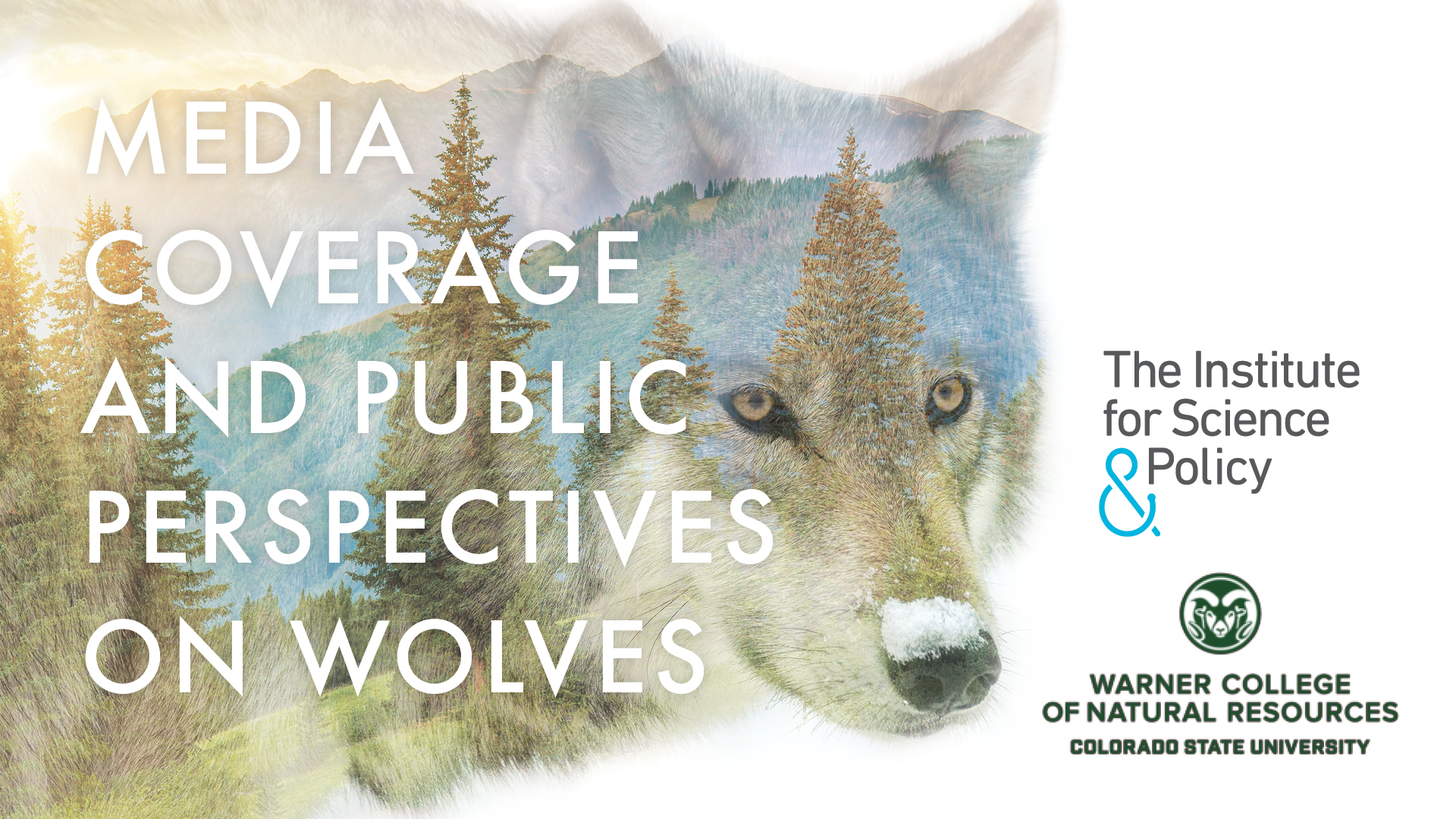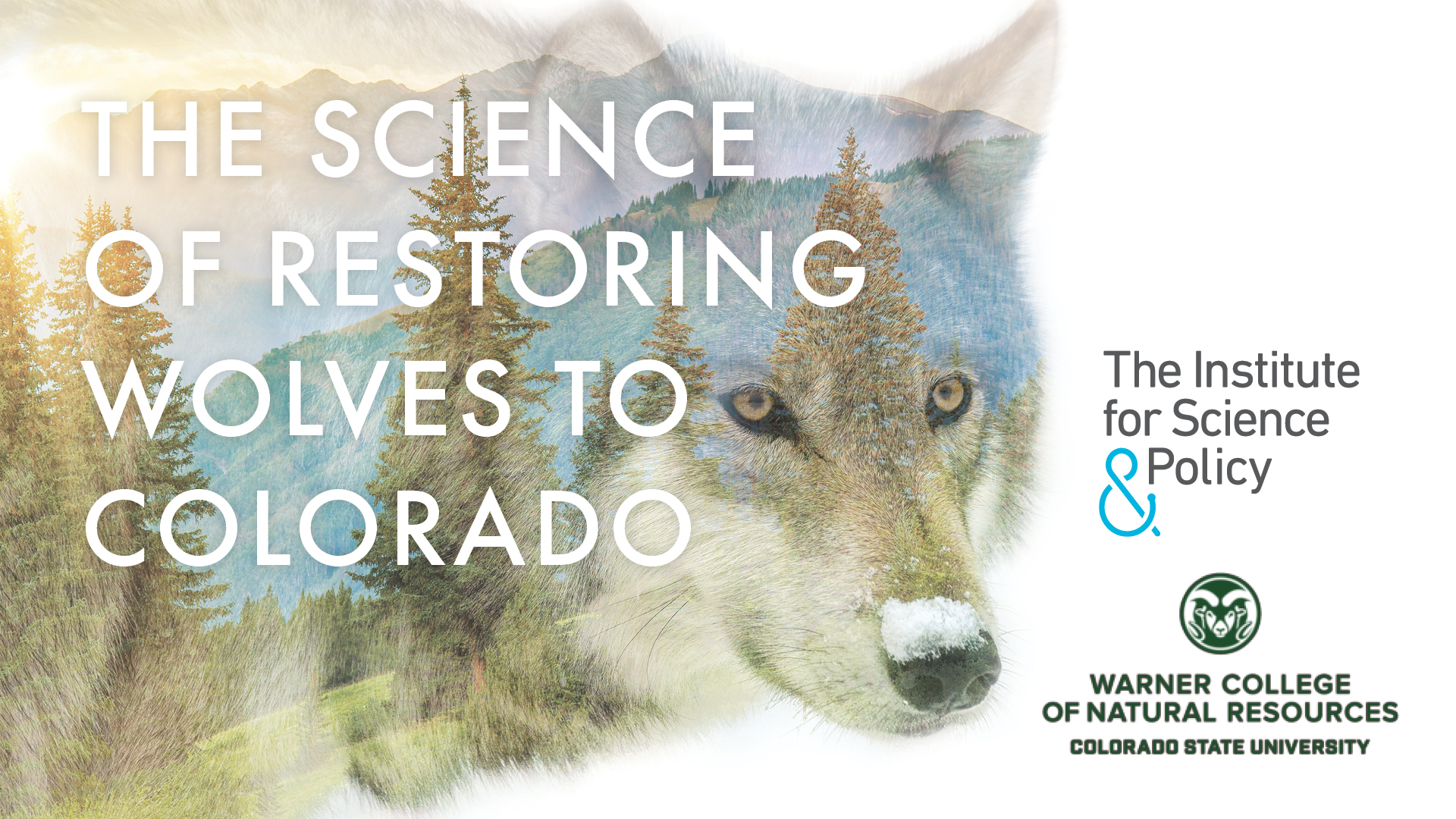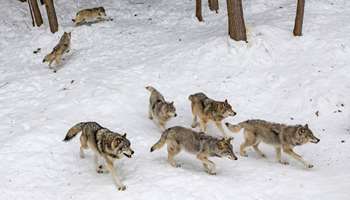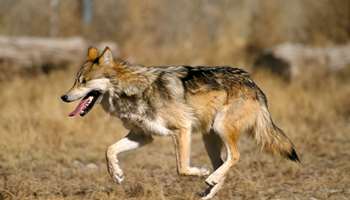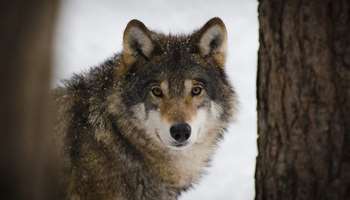Wolves in Colorado: Science & Stories
Wolves are coming back to Colorado. What comes next in terms of sustainable management and science-based policy?
Presented in partnership with
After a nearly 80-year absence, gray wolves are returning to Colorado. In July 2019, a lone radio-collared wolf became the state’s first confirmed Canis lupus sighting in the wild in years. In November 2020, voters narrowly passed Ballot Proposition 114, which instructed the Colorado Parks and Wildlife Commission to formally reintroduce wolves no later than 2023.
The return of this charismatic and controversial species has sparked a wide range of passionate reactions. Some Coloradans praise the restoration of an endangered apex predator to its ancestral range while pointing to the associated ecosystem benefits. Others are wary of the economic impact on agriculture and the challenges of adding wolves to the increasingly populated Western Slope. For generations, wolves and humans have navigated a fraught dynamic of coexistence. So what does the science tell us about the pros and cons of wolves returning to our backyard? And, if wolves are in Colorado’s future, how can society have an effective dialogue that uses science to inform policy and management?
Watch All Episodes
Episode 7: The Colorado Plan
Following the passage of Proposition 114, the 2023 Draft Colorado Wolf Restoration and Management Plan is now complete. Our panelists offer a broad overview of the plan and explore the process of reaching consensus on this controversial issue. Panelists included Reid DeWalt, Assistant Director for Aquatic, Terrestrial and Natural Resources at Colorado Parks & Wildlife; and Stakeholder Advisory Group Members Renee Deal, rancher in Somerset, and Bob Chastain, CEO and President of the Cheyenne Mountain Zoo.
Episode 6: After the Vote
In November 2020, Colorado voters narrowly approved Proposition 114, initiating a managed reintroduction of gray wolves by 2023. Now what? Colorado Parks & Wildlife Director Dan Prenzlow, a Colorado native and a 33-year veteran of the agency, joined us to discuss the short-term practical implications of the ballot initiative result and then share some of CPW’s longer-term goals and vision for bringing wolves back to the state.
Episode 5: The Experience of Living With Wolves
Hear stories and lived experiences from Shane Doyle (Apsaalooke/Crow), an educational and cultural consultant; Denny Iverson, Rancher and Logger at Iverson Ranch (Montana) and Secretary of the Blackfoot Challenge; and Kim Skyelander, Associate Director of the Center for Collaborative Conservation at Colorado State University sharing wolf-human co-existence strategies and what they’ve learned about balancing diverse viewpoints.
Episode 4: The Values & Costs of Wolves
The presence of wolves on the landscape creates inherent tradeoffs. Stanley Asah, Professor in the School of Environmental and Forest Sciences at the University of Washington; Shauna Baron, a naturalist guide in Yellowstone National Park; and Dana Hoag, Professor in the Department of Agricultural & Resource Economics at Colorado State University explore different interpretations of costs and values before looking at some of the most recent economic studies that put a dollar value and a price tag on coexistence.
Episode 3: Community Perspectives & Conflict
Wolves evoke strong reactions that are informed by our life experiences and cultural values. Often these reactions have less to do with the species itself and more to do with deep-seated tensions over the rural-urban divide, management of public lands, and human needs such as security, meaning, and freedom. Is there a possibility of finding common ground? Bill Fales, a rancher in Colorado’s Crystal River Valley, and Jonathan Proctor, Program Director of the Rockies and Plains Program for Defenders of Wildlife, discuss.
Episode 2: Media Coverage & Public Perspectives
Sam Brasch, Reporter at Colorado Public Radio, and Rebecca Niemiec, Assistant Professor, Department of Human Dimensions of Natural Resources at Colorado State University join to discuss ongoing studies around public attitudes of wolves and the most commonly held misconceptions.
Episode 1: The Science of Restoring Wolves to Colorado
In our premiere episode, we discuss wolf-related policy and the latest ecological and social science research pertaining to wolf ecology, interactions with big game and livestock, and public perceptions of wolves with Stewart Breck, Research Wildlife Biologist, USDA Wildlife Services, and Kevin Crooks, Director of the Center for Human-Carnivore Coexistence at Colorado State University.
Further Reading

Stay in touch.
Sign up to receive The Ampersand, our monthly e-newsletter. We'll also let you know about upcoming events and content launches.
Yes, keep me up to date.
